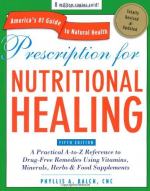|
This section contains 789 words (approx. 3 pages at 300 words per page) |

|
Vitamins are organic molecules that are needed in small amounts in the diet. They are frequently molecules that bind in the active site of an enzyme and thereby alter its structure in a way that permits it to react more readily. Vitamins serve nearly the same role in all forms of life and many are essential in the metabolism of all living organisms. They are synthesized by plants and micro-organisms and the absolute requirement for vitamins in the diet of higher animals is the result of the loss of this biosynthetic capability during evolution. The biosynthetic abilities and thus the dietary requirement of different species vary. For example, ascorbic acid (vitamin C) is a vitamin only for primates and a few other animals, such as the guinea pig, but most other animals can synthesize it, so for them it is not a vitamin. Certain vitamins can be synthesized...
|
This section contains 789 words (approx. 3 pages at 300 words per page) |

|


